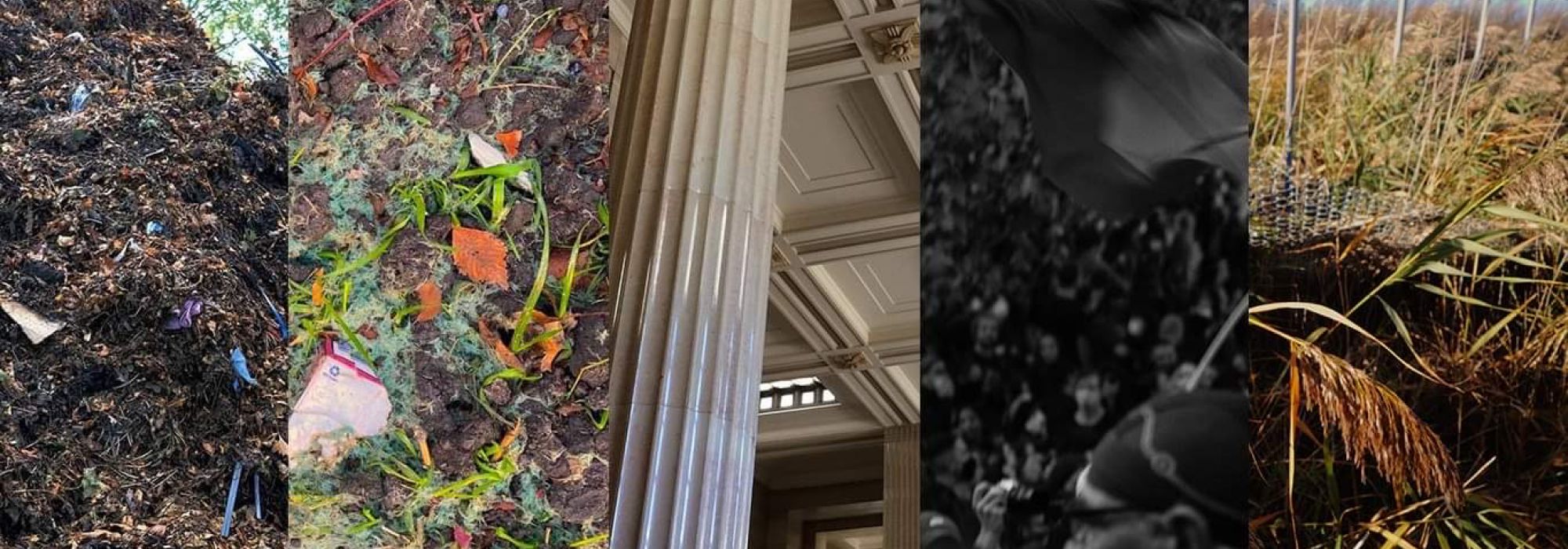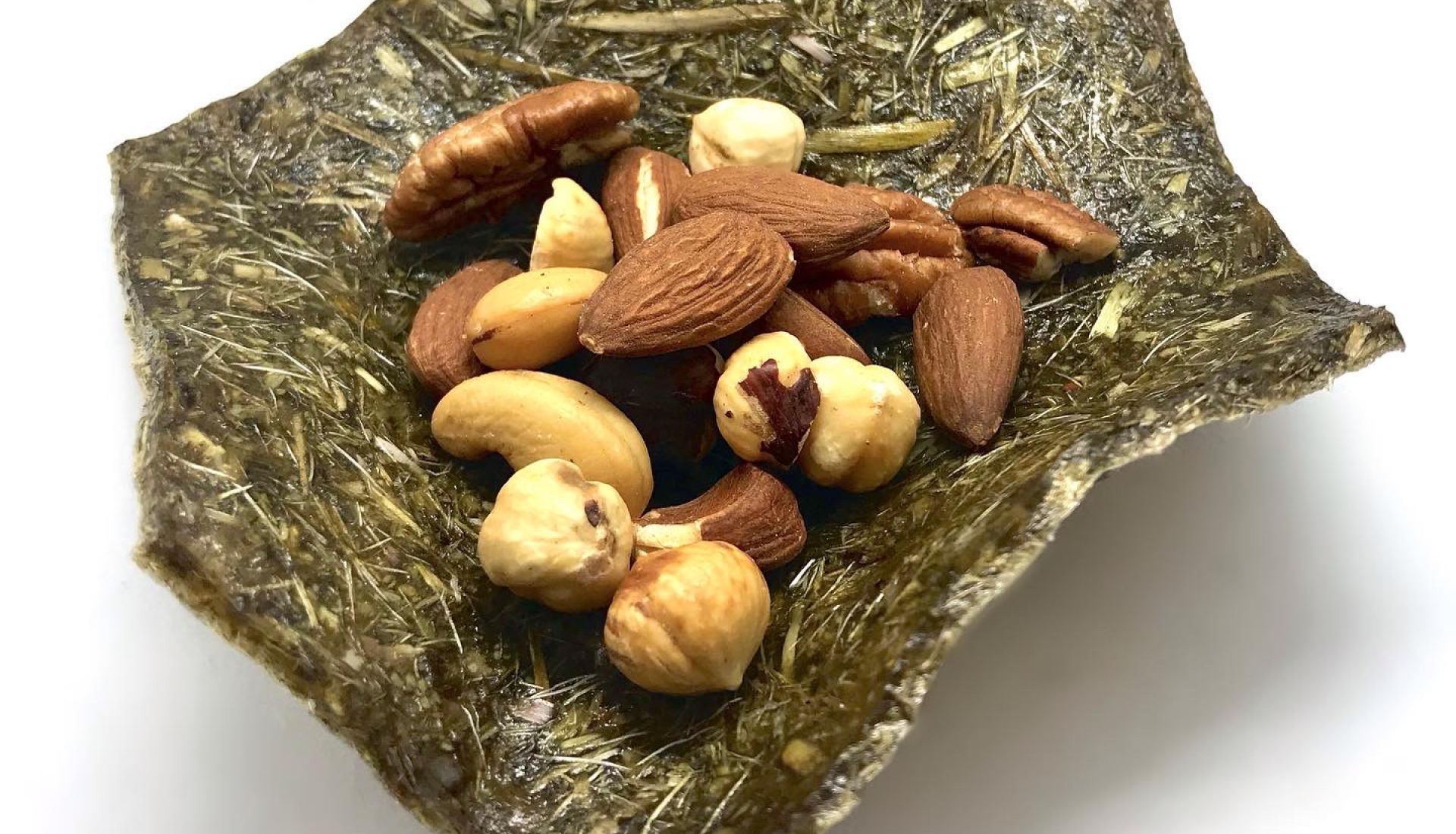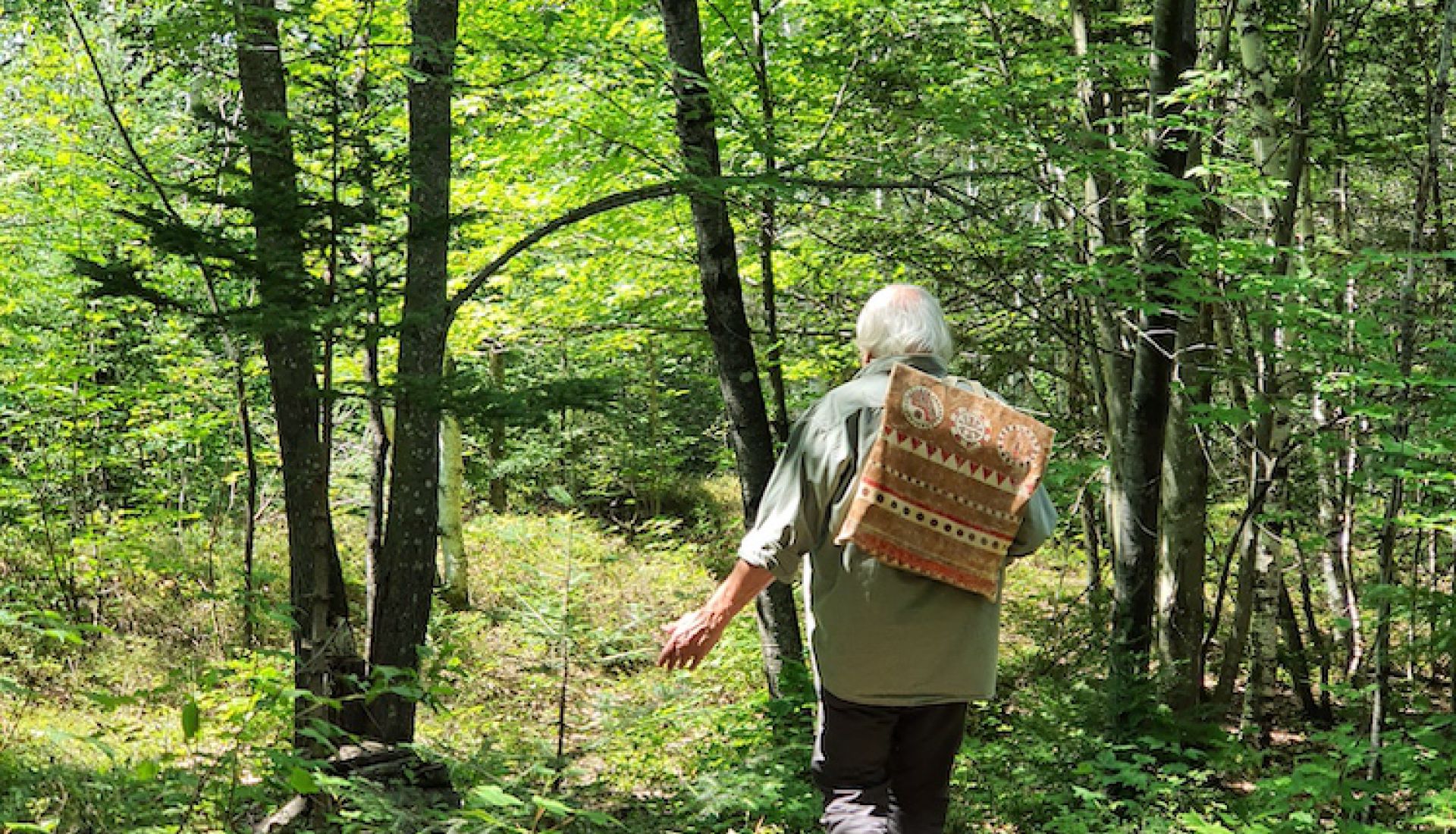Critical Archeological Mediations
A public discussion between Design and Computation Arts students (Concordia University, Seminar: Critical Materiality, prof. Alice Jarry) and Communication students (University of Toronto, Media Archeology, prof. Marie-Pier Boucher)
November 30th, 9:30 am - 10:30 am
Slow Tech and Response-ability: Sustainable Production and Consumption of Textiles and Fashion
With Sidney Bagsit (University of Toronto), Charlene Cruz (University of Toronto), Juliette Dam Bonneau (Concordia University), Catherine Weng (Concordia University), Larissa Zemke (Concordia University)
Keywords: Zero-Waste, Textiles, Circularity, Slow Tech, Remediation, Obsolescence, Accessible Production Methods, Upcycling, Biodegradability
November 30th 11:00 am - 12:00 pm
(Re)forming and Remediating Community Infrastructures
With William Couture (Concordia University), Kunning Chen (University of Toronto), Lisa Dubuc (Concordia University), Emily Gorner (Concordia University), Julianna Ramrattan (University of Toronto), Philippe Vandal (Concordia University), Lindsey Weller (Concordia University)
Keywords: Urban Resource Management, Public Space, Residual Media, Public Policies, Infrastructures, Decolonial Remediation, Intersectional Environmentalism, Socio-Ecological Justice, Material Representation, Urban Ecology
A large part of practice-based research transpires in form and in the experience of sensory perception. What happens when the studio and our material practices move to public space ? How can research-creation in the making be communicated and experienced? This activity aims at questionning practice in relation to materials and materiality; objects, technologies, media and techniques; and socio-environmental topics. Students in four interuniversity groups will present their projects and research under beta forms, and give a public account of their work and methods. Groups will develop feedback loops between the practical and theoretical ideas catalyzed in the two seminars. This format aims at renewing the conditions in which creation takes place, is exhibited, and communicated. The two-day activity will involve workshops, round-tables, and open discussion.
Slow Tech and Response-ability: Sustainable Production and Consumption of Textiles and Fashion
with Sidney Bagsit (University of Toronto), Charlene Cruz (University of Toronto), Juliette Dam Bonneau (Concordia University), Catherine Weng (Concordia University), Larissa Zemke (Concordia University)
November 30th, 9:30 am - 10:30 am
How can sustainable and DIY accessible design and production methods be scaled in response to industrial production?
What does the socio-historical context of materials (ie. cotton, wool, silk) and clothing production methods (i.e. Jacquard loom, sewing machine, pattern cutting, etc.) tell us about how the socio-cultural and environmental human experience has evolved?
In an age of environmental degradation and over-consumption, rethinking the design, production and consumption of apparel and textiles is essential for a sustainable future. Statistics show that in the last 15 years, clothing purchases have doubled while the number of times an item is worn has fallen by 20% (Ellen MacArthur Foundation, 2017), demonstrating that people are throwing away far more textiles and clothing than ever before. How can we as designers and consumers mitigate the environmental impact of the fashion and textile industry?
This conference aims to explore the application of slow tech and 'response-ability', defined by Donna Haraway (2016) as 'cultivating collective knowing and doing' in the textiles and fashion industry. Our discussion on sustainability and circularity in the textiles and fashion industry will be informed by perspectives from designers, media archaeologists, and established practitioners. Sustainable practices including zero-waste, biodegradability and upcycling will be presented along with a media archeological analysis on the production and consumption of clothing and textiles.
The conference is organized around central themes of residual media, circularity, upcycling, remediation, machine narratives, design for disassembly, and media as a human extension. Particular attention will be given to the use of sustainable textiles design and production processes in order to reveal their socio-historical contexts. Mingling formal presentations and discussions, this event proposes a workshop to encourage reflection on possibilities of responsible consumption and disposal of clothing and textiles.
We ask for participants to bring the following pre-selected items to participate in the live workshop: their most valued wearable item of sentimental or monetary value and one of their least used items that, in the words of Marie Kondo (2019), “does not spark joy anymore.”
(Re)forming and Remediating Community Infrastructures
with William Couture (Concordia University), Kunning Chen (University of Toronto), Lisa Dubuc (Concordia University), Emily Gorner (Concordia University), Julianna Ramrattan (University of Toronto), Philippe Vandal (Concordia University), Lindsey Weller (Concordia University)
November 30th, 11:00 am - 12:00 pm
How can we remediate public spaces and promote resilient socio-environmental relations that transform the structures of domination imposed upon environments and communities, such as soil management, snow removal methods, and their intersectional repercussions upon communities?
How can the decolonization of material practices (re)form community infrastructures and challenge socio-ecological justice?
(Re)forming and Remediating Community Infrastructures is an interdisciplinary dialogue that explores the urban material and socio-political infrastructures that shape our communities - from snow removal, to water filtration, to plantlife and courthouses. These types of essential public infrastructure are commonly perceived as permanent in their current iterations, and yet, each contains immense potential for systemic change via tangible, physical alterations, and community engagement.
All too often the current methods of assessing infrastructure and public space lack comprehensive discernment. The negative impacts of infrastructures and/or unexplored potential of residual mediums from secondary processes, such as where and how we pile snow after its removal from our city streets, are not awarded enough potential in debates on public policy and socio-ecological justice. Our group explores new ways of assessing public spaces through materiality and an interdisciplinary lens in order to reveal their dynamic identities and render visible the active processes that constitute them.
Presenters from Concordia University and the University of Toronto will bring an interdisciplinary approach, mixing the fields of design and media theory to bring upon positive social and environmental changes through the reconsideration of our material surroundings. The presentations will be structured around four central subjects: the interior materiality of courthouses, implementation of sustainable Indigenous planting systems, snow management in urban spaces, and contamination of wastewater in Indigenous communities.
(Re)forming and Remediating Community Infrastructures asks audience members to consider how public space and policy affect them in intimate ways. With the intention of (re)forming urban materiality, the materials themselves will provide speculative narratives on how to engage with our communities’ many wicked problems that prevent systemic change.
Photo: Projects by William Couture, Lisa Dubuc, Emily Gorner, Philippe Vandal, Lindsey Weller



